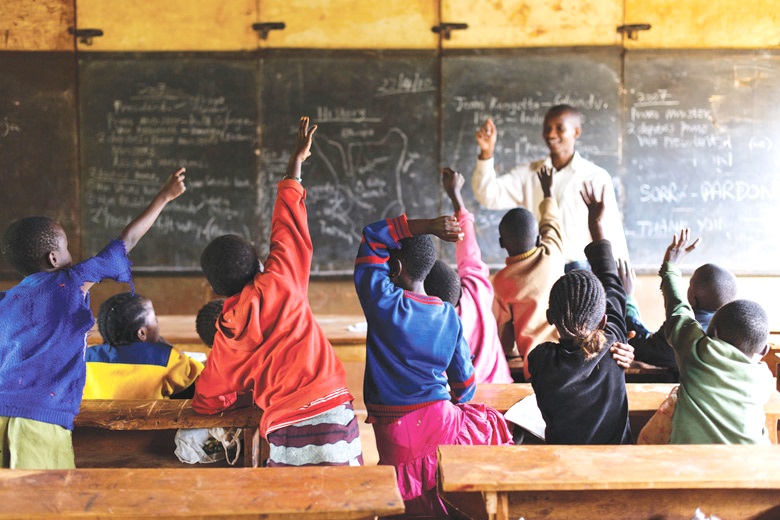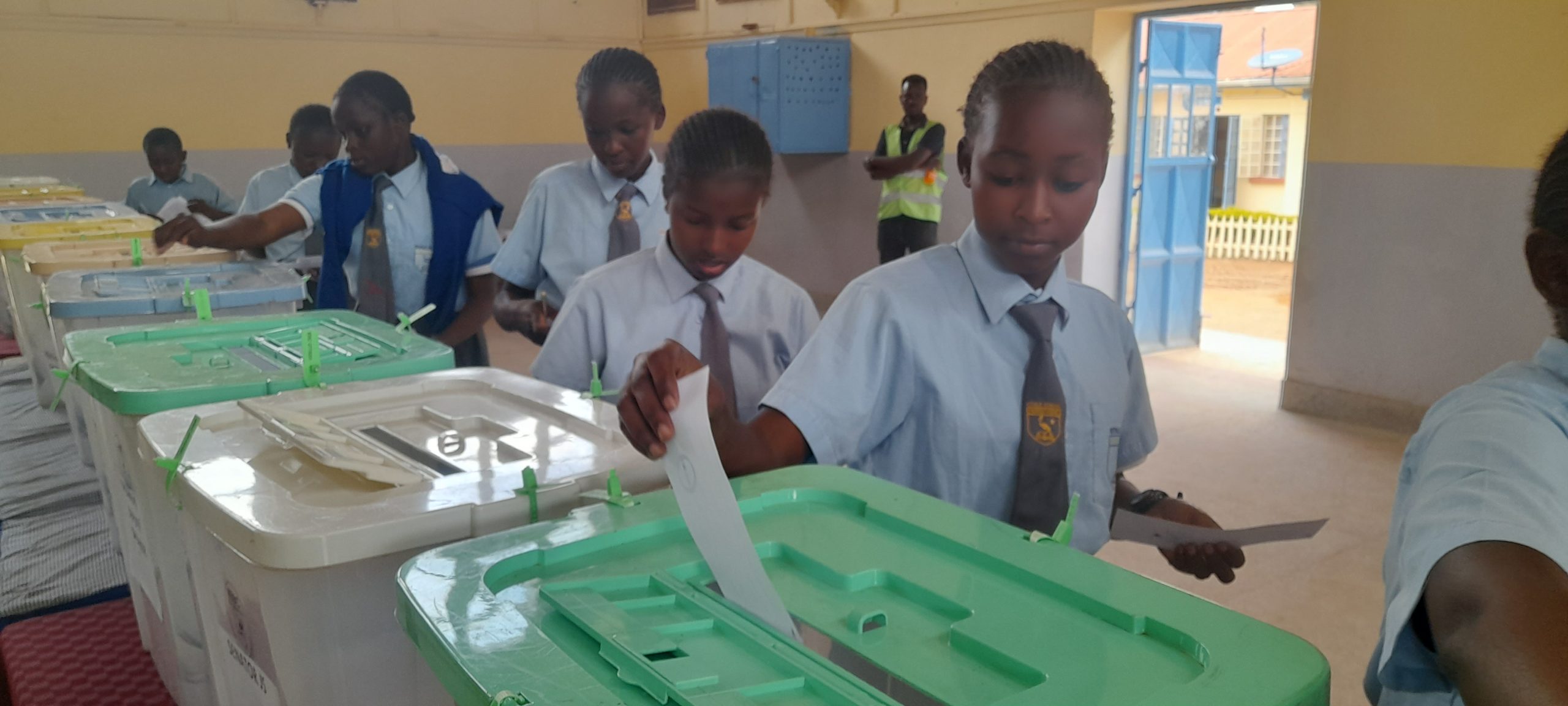The recently released national report on Competency-Based Education (CBE) prepared by the Ministry of Education’s State Department of Basic Education has placed more emphasis on the need to address pertinent issues in teacher management for effective implementation of the new education system.
The report, which was released during the just concluded National Conversation on CBE in particular, noted that there is need to improve teachers working conditions, address health insurance concerns and mental health support.
Additionally, it stressed the need to consider regular counseling sessions and stress management workshops as interventional strategies.
It has also recommended that the Teachers Service Commission (TSC) address staffing challenges in order to improve achievement of learning outcomes by reassigning teachers in junior schools to their areas of specialization.
The Ministry of Education (MoE) will further establish a structured in-service retooling program to enhance continuous capacity development and reorient retooling objectives to address the unique needs of teachers in the specialized learning areas in a bid to address capacity gaps.

This after stakeholders during the county dialogue forums expressed that environmental hardships, particularly in remote and underserved regions, were a major barrier to teacher motivation.
They also cited high teaching workloads for teachers in junior school, limited resources, and a lack of mental health support as contributors to teacher burnout, with concerns about health insurance coverage as causes of demotivation among teachers.
ALSO READ:
MoE proposes changes in Special Needs Education in latest report
Further, the stakeholders argued that there were delays in communication, retooling programs, and recruitment processes, and also complaints of unauthorized deductions from teachers’ pay, which affected teacher motivation.
The retooling of teachers for capacity development was another area of concern, where stakeholders explained that many teachers in junior schools for learning areas such as Creative Arts, Pre-technical Studies and Applied Sciences were not specialists in the subjects they were implementing.
“Another critical issue raised by stakeholders was the shortage of qualified human resources, particularly in county and sub-county schools. They emphasized that scarcity of STEM teachers was a major setback, affecting the delivery of science and technology subjects,” read the report.
“Stakeholders proposed teacher rationalization and retooling programs for senior school teachers for effective transition. Additionally, they pointed at the need for training more sign language and technical subject teachers to ensure inclusive education for all students,” added the report.

They critiqued the prevailing retooling programs, arguing that they lacked structured professional development opportunities, especially for teachers in the specialized learning areas, citing them as insufficient for comprehensive capacity development, and proposed more structured in-service training.
ALSO READ:
Joy as Governor Wanga unveils new ECDE classrooms in Homa Bay
School dropouts
And in what will be seen as a major win for those who dropped out of school under the 8-4-4 system of education, which is being phased out, the report now recommends the development of a path for learners to re-enter the system under the Competency-Based Curriculum (CBC).
In the report, the MoE has recommended that the country’s curriculum developer, the Kenya Institute of Curriculum Development (KICD), develop a CBC Pathway for adult learners in a bid to align adult education to the new education system.
“Align adult learning programs with CBC principles and create structured re-entry pathways for out-of-school youth and adult learners,” reads the report, which further recommends implementation of accelerated and flexible learning models in adult education programme, to introduce customized programs, including Recognition of Prior Learning (RPL), to accommodate diverse learner backgrounds and experiences.
The ministry has further recommended expanded access and awareness through increasing the number of adult education centres and implementing awareness programmes.
This is after stakeholders noted that there was little attention given to adult education in the CBE since many learners who dropped out of school, were over-age, or who came from non-formal education settings felt left out.
ALSO READ:
In addition, there were no clear ways for them to re-enter the system under CBC, and adult learning programs had not been aligned with the new curriculum, with stakeholders suggesting that there should be special programs for adult learners, including accelerated learning options and recognition of prior learning, and the opening of more adult learning centres in areas where adult illiteracy remained high.
For those learners who will drop out of school under the new system, the report has asked the MoE to develop a framework for re-entry of learners who drop out at various levels of CBE and the country’s examination body, the Kenya National Examination Council (KNEC), to develop a framework for admission and certification of learners from other systems of education.
Learners to be consulted
In what is being viewed as a shift from the norm, under the new system of education, learners will now be consulted in case of any new policies that will affect them directly.
“The ministry should also involve learners in the development of policies and guidelines affecting them directly,” the report says.
This development comes after recent stakeholder county dialogue forums where several concerns were raised regarding the placement and transition of learners from junior to senior school, particularly in how the process had been handled and communicated to stakeholders.
ALSO READ:
Students face hardship in courses revision amid limited University options, unclear funding
One key issue raised was that children were not directly consulted, as required by the Children’s Act 2012, with stakeholders noting that their voices, needs, and opinions should have been considered in the decision-making process to ensure that the transition was truly in their best interest.
Structured career guidance
The report also proposes strengthening the career guidance systems at junior schools in order to help learners navigate this crucial transition period to Grade 10 come January next year.
This is after stakeholders raised concerns over the lack of adequate career guidance for junior school learners and pointed out that without proper direction, students would struggle to make informed choices about their future academic and professional paths.
ALSO READ:
Primary school heads decry crisis in education during webuye KEPSHA meeting
This issue was particularly critical for Grade Nine learners, who the stakeholders viewed as often too young to make significant career decisions on their own. They felt that at this stage, many learners may not fully understand their interests, strengths, or the implications of choosing a particular educational pathway.
Stakeholders expressed the need for a comprehensive manual outlining the selection criteria for Grade 10 placement to facilitate a smooth and well-informed selection process in a bid to ensure transparency and consistency in decision-making while allowing parents, teachers, and students to make choices based on clear guidelines.
They also suggested that teachers should be adequately trained and equipped to provide career guidance to students, which will also go a long way in helping teachers assist learners in making informed choices but also explaining the significance of each available pathway.
By Hezron Roy
You can also follow our social media pages on Twitter: Education News KE and Facebook: Education News Newspaper for timely updates.
>>> Click here to stay up-to-date with trending regional stories
>>> Click here to read more informed opinions on the country’s education landscape






